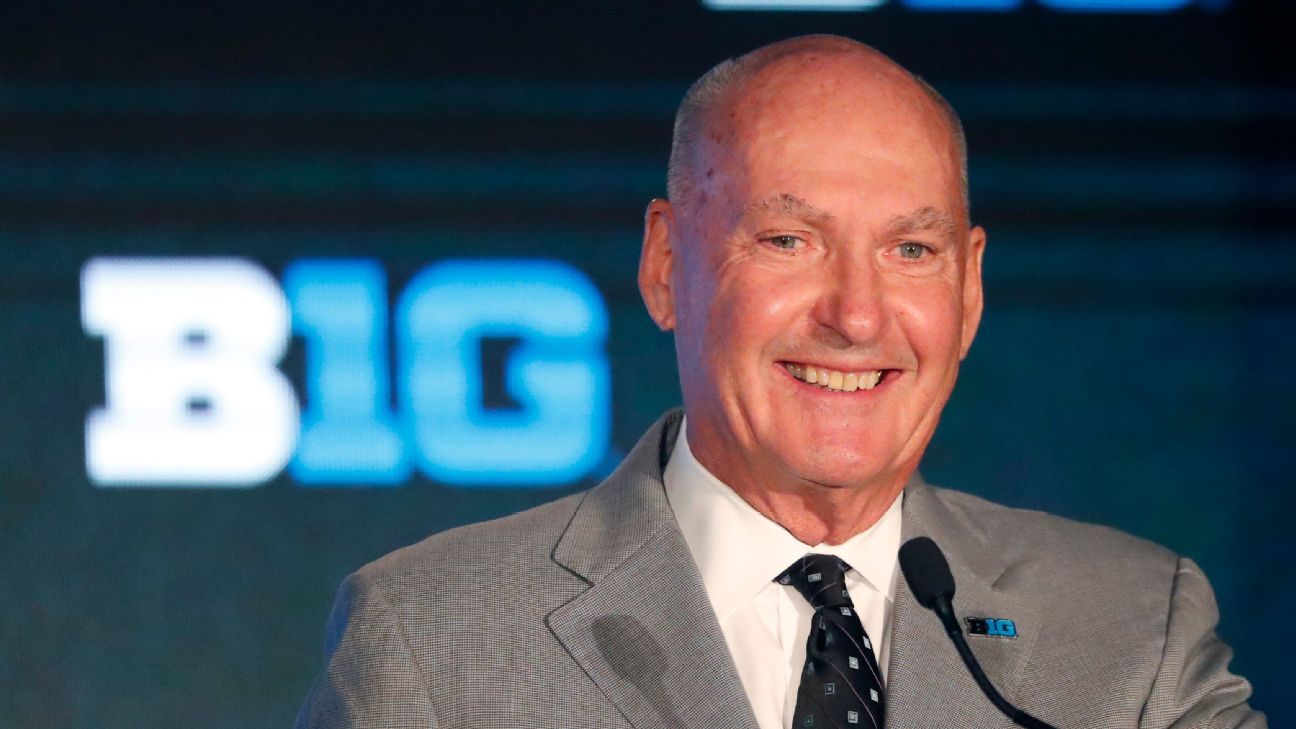CHICAGO — Big Ten commissioner Jim Delany thinks the College Football Playoff selection committee must remember its mission to value conference championships and schedule strength in determining the four participating teams.
The Big Ten champion has missed the CFP in each of the past three years, and the league has been left out entirely in 2017 and 2018. Delany, who is stepping down as commissioner on Jan. 1 after 31 years at the helm, recited the selection committee’s instructions to consider schedule schedule and conference championships when comparing playoff candidates with similar profiles.
Delany said he didn’t understand how Ohio State, the 2018 Big Ten champion at 12-1, finished sixth in the final CFP standings, behind SEC runner-up Georgia.
“Clearly, Alabama and Clemson have separated themselves and they have earned everything that they’ve earned in the last couple years,” Delany said at Big Ten media days. “But I’m not sure that the strength of schedule or the conference championship has been adequately rewarded.”
Delany supports the idea Big 12 commissioner Bob Bowlsby voiced Monday to have all Power Five conference teams play at least 10 Power Five opponents. Big Ten, Big 12 and Pac-12 teams all play nine-game conference schedules and typically at least one non-league Power Five opponent. The ACC and SEC play eight-game conference schedules, with most teams adding one non-league game against Power Five opponents and some playing two such contests.
“I’ve been disappointed, quite honestly, about the strength of schedule,” Delany said. “We’re not going to change. There may be pressure to change, but I think that’s short-selling our fans, our players, our TV partners. I’m hoping that the committee catches up with the intent of the founders.”
Delany didn’t think Ohio State athletic director Gene Smith’s presence on the CFP selection committee negatively impacted the Buckeyes’ chances for inclusion, as Smith recused himself when Ohio State was discussed. But Delany hopes the committee has “a little more continuity” going forward, and hopes the CFP makes a stronger commitment to its original mission.
“We should be playing comparable schedules, and if we’re not playing comparable schedules, there ought be a some way to differentiate that,” Delany said, “but we haven’t had our way on that one.”
